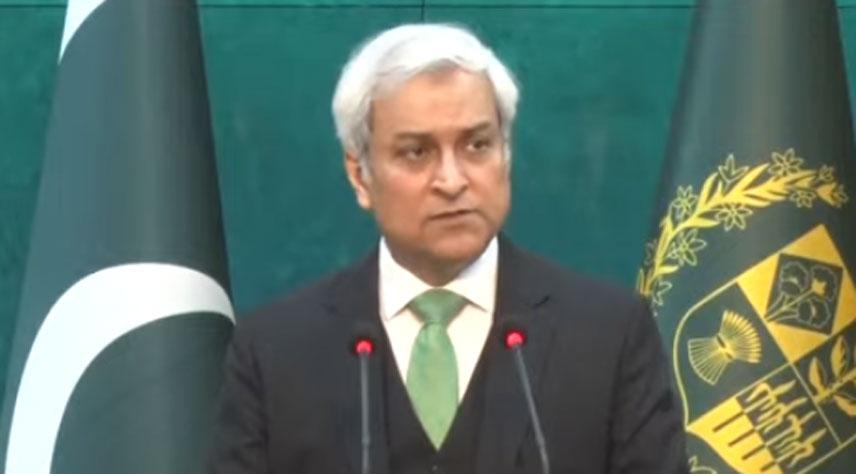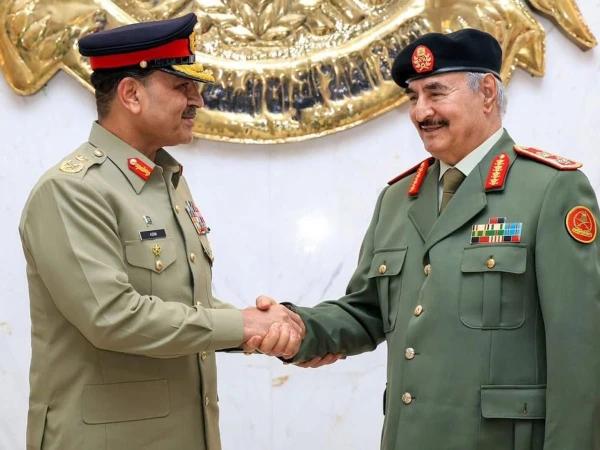‘From Soldier to Deputy Commissioner is not just the story of one man; it is an important document reflecting many faces of society’

Dr Lubna Zaheer
Autobiography is an important genre of literature. Generally, the autobiography of a well-known and successful person is the story of his or her life, reflecting hard work, struggle, and perseverance. It shows how a person faced failures and eventually achieved success. Yet, the biography of any person, regardless of profession or field, is not just the story of one life—it also mirrors various aspects of society. World figures like Nelson Mandela, Barack Obama, Mahatma Gandhi, and Benazir Bhutto have written their memoirs. Many such books gained immense popularity and became historical references.
Personally, I have a great interest in reading memoirs of prominent personalities. In my humble opinion, reading about the struggles, dedication, and resilience of others inspires readers to move forward. For instance, in former U.S. President Barack Obama’s books Dreams from My Father: A Story of Race and Inheritance and A Promised Land, we gain insights into his personal, social, and political life. Additionally, we see how an ordinary Black man from a modest background, through sheer hard work and determination, became the President of the world’s most powerful country. The natural ups and downs of a life, when narrated in such autobiographies, captivate readers. These books are widely read and appreciated.
A few days ago, Brother Abdul Sattar Asim, the guiding force behind Qalam Foundation, graciously gifted me an autobiography titled From Soldier to Deputy Commissioner. It tells the story of a young man from a remote and underdeveloped village in District Kasur, who began as an ordinary soldier in the army and, through education and professional struggle, rose to the position of Deputy Commissioner.
The author, Abdul Ghafoor Chaudhry, while narrating his rural background, explains that his parents were not highly educated. Even so, they encouraged their son to study and progress. Despite her limited education, his mother instilled in him the values of hard work, justice, honesty, and self-respect. Without pretension or embellishment, the author describes his rural life. He recalls how he would carry a plastic sack from home to sit on at school, bring parathas and pickles for lunch, and drink water directly from a tap. He began learning English A, B, C, from the sixth grade.
From this modest background, he was recruited as a soldier in the army. He later became a Junior Commissioned Officer, continued his education, and taken various exams along the way. Eventually, he cleared the PCS examination, stepping onto the ladder of bureaucracy. He recounts simply how, when he first became an officer, the environment was completely new to him. Following the example of other officers, he bought a necktie for the first time in his life, something his father didn’t even recognize.
The book is filled with fascinating stories and instructive experiences. It reveals the kinds of challenges and temptations faced by officers in government institutions, the pressures they must endure, and the hurdles sometimes created by both superiors and subordinates to block legitimate work. At the same time, it also shows that government departments are not devoid of pious and upright individuals who fulfill their duties with honesty and give encouragement to others.
Through the author’s observations, readers gain insight into the temperament of government offices, their work procedures, and the strengths and weaknesses of administrative structures. While reading, one feels as though they are personally witnessing the processes of decision-making and daily operations in the offices of civil servants. The personal experiences narrated in this book offer lessons in honesty, principle, and patience. They demonstrate that if one chooses the path of integrity, one continues to walk it regardless of personal loss or gain.
A striking feature of the book is its use of simple, clear language. The stories are narrated with great interest, and the sequence of events compels the reader to keep turning the pages. From Soldier to Deputy Commissioner is not just the story of one man; it is an important document reflecting many faces of society.
The central message of this book is that with determination, courage, and dedication, a person can reach any height through his own efforts. Today’s youth often complain that success is impossible without connections or recommendations. As teachers, we consistently tell them that no power in the world can block the path of your hard work and talent. Abdul Ghafoor Chaudhry’s autobiography teaches us the same lesson.
I strongly recommend that this book should be available in the libraries of all colleges and universities in Pakistan. Young people must read it. Surely, after reading this journey, they will be encouraged to believe that one can rise from the humblest background to the highest position. They will also learn not to shy away from small beginnings, nor to consider any task beneath their dignity. To reach the destination, one must take the first step.

The author is a Professor of Media and Communication Studies and a broadcast media expert. She currently serves as Chairperson of the Department of Film and Broadcasting at Punjab University
Disclaimer: The views expressed in this article are those of the author and do not necessarily reflect the official policy or position of www.gnnhd.tv

9 actually good things that happened to animals this year
- 24 minutes ago

One of Trump’s grudges now threatens America’s weather forecasts
- 25 minutes ago
Water aggression against Pakistan: India curtails Jhelum flows after Chenab
- 10 hours ago
Is eliminated Chiefs' Super Bowl window closing -- and what changes are ahead?
- an hour ago
More than 42mn children administered polio vaccination during final polio drive in Pakistan
- 14 hours ago
Heat F Jovic's MRI clean after hard fall; day-to-day
- an hour ago
Silver: NBA to explore relief for Heat over Rozier
- an hour ago
Harrison Ford to get lifetime acting award
- 10 hours ago

Sony’s XM5 over-ear headphones are cheaper than ever — and they come with free wireless earbuds
- 2 hours ago

Arcade1Up isn’t dead, maybe
- 2 hours ago

Trump’s attack on trans health care, briefly explained
- 24 minutes ago

Climate change is rewriting polar bear DNA
- 24 minutes ago








